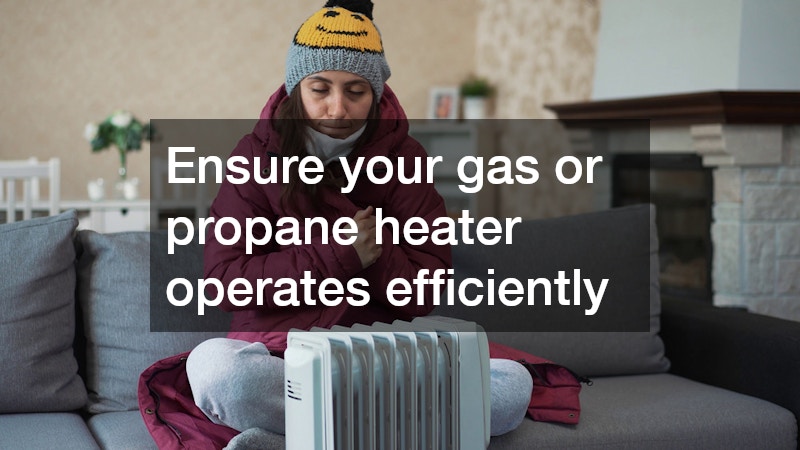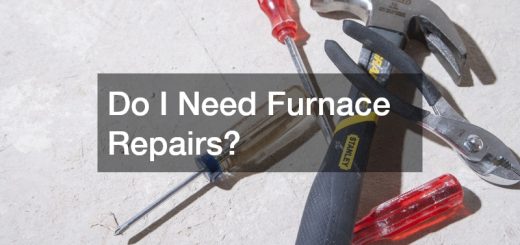Keeping Your Gas and Propane Heater Running Efficiently All Year
Understanding the importance of maintaining your gas and propane heater can significantly improve efficiency and longevity. In this article, we’ll explore the most common questions homeowners have about maximizing their heater’s performance and provide insights into gas and propane heating services.
How Often Should I Service My Gas or Propane Heater?
Regular servicing of your heater ensures that it operates at peak efficiency, reducing the risk of unexpected breakdowns. As part of maintenance, professionals often clean critical components, check for leaks, and adjust controls, which collectively enhance performance and safety.
Experts recommend servicing your heater at least once a year, ideally before the onset of the winter season, to ensure smooth operation during colder months.
Scheduling regular maintenance not only contributes to the efficiency of the system but can also extend the lifespan of your heater, saving you money in the long run. During maintenance, technicians can spot potential problems before they escalate into costly repairs, providing homeowners with peace of mind. Routine check-ups also help in ensuring that your heater operates within safe parameters, reducing potential hazards such as carbon monoxide leaks.
By adhering to a regular service schedule, homeowners can optimize their heater’s energy consumption, leading to lower utility bills. In addition to energy savings, a well-maintained heater is less likely to overwork, resulting in fewer emissions, which is beneficial for the environment. Ultimately, the small investment in regular maintenance can result in significant savings and enhanced comfort throughout the heating season.
What Are the Common Issues Faced by Gas and Propane Heaters?
Gas and propane heaters can encounter issues such as irregular heating, where rooms are heated unevenly or not at all. This problem is often caused by clogged filters, blocked vents, or issues with the thermostat settings, which can typically be resolved with some basic troubleshooting measures. Another frequent problem is the pilot light going out, which can be caused by a variety of factors, including a faulty thermocouple or drafts affecting the light.
Strange noises emanating from your heater, such as rattling, banging, or whistling sounds, can be an indicator of underlying problems. Loose or damaged components, debris in the unit, or air in the system can contribute to these noises, necessitating thorough inspection and repair. Homeowners can often address minor problems by themselves, but for persistent or complex issues, professional service is recommended to ensure safety and efficiency.
Knowing how to troubleshoot common problems with your gas or propane heater can save time and prevent minor issues from becoming major repairs. In addition to resolving current issues, ensuring that your heating system is clean and free of obstructions can help prevent future problems. Regular checks and timely interventions are vital to maintaining a consistent and reliable source of heat throughout the colder months.
How Can I Improve the Energy Efficiency of My Heater?
Improving the energy efficiency of your heater starts with regular maintenance and efficient operation practices. One effective approach is to ensure that your home is well-insulated, reducing the loss of heated air and minimizing the work your heater has to do. Incorporating smart thermostats or programmable settings can help optimize heating schedules, ensuring your home is warm only when needed.
Another effective energy-saving practice is to routinely check and replace air filters, as clogged filters force the heater to work harder, consuming more energy. Sealing leaks around doors and windows can also prevent heated air from escaping, thus requiring fewer energy resources to maintain a comfortable indoor environment. Additionally, homeowners should consider setting their thermostat lower during the night or when not at home to conserve energy without sacrificing comfort.
Practicing mindful heating habits, such as keeping curtains open during the day to allow sunlight to naturally warm the space, can also enhance efficiency. Adding rugs, particularly in areas with hard floors, can provide added insulation and reduce the effort needed by your heater. Altogether, these energy-saving practices not only reduce energy consumption but also contribute to lower utility bills and environmental sustainability.
By keeping up with regular maintenance, addressing common issues promptly, and implementing energy-saving strategies, you can ensure your gas or propane heater operates efficiently throughout the year, providing consistent warmth and reducing energy costs. A proactive approach to heater care not only ensures comfort during cold months but also extends the system’s lifespan, offering significant economic and environmental benefits.
.



